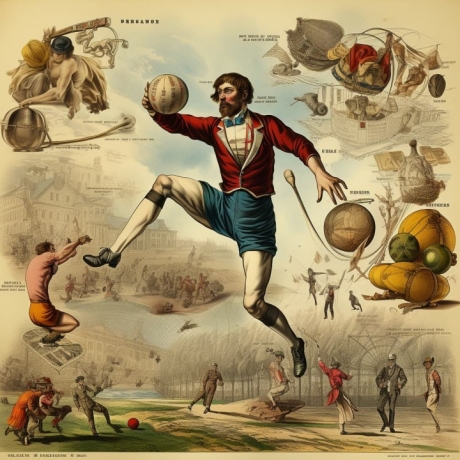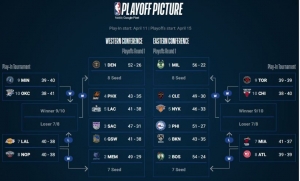In the realm of human activity, few endeavors capture the collective imagination and passion quite like sports. From the ancient Olympic Games to the modern-day global spectacles like the FIFA World Cup and the Olympics, sports have been an integral part of societies worldwide. However, the concept of sports is not static; it evolves with time, reflecting changes in culture, technology, and societal values. In this comprehensive exploration, we delve into the dynamic evolution of sports, tracing its journey from ancient origins to the present day, and forecasting its future trajectory.
Ancient Roots and Rituals:
The origins of sports can be traced back to ancient civilizations, where physical contests were often intertwined with religious rituals and cultural practices. In ancient Egypt, for example, sports such as wrestling and archery were depicted in hieroglyphs and reliefs, showcasing their significance in society. Similarly, the ancient Greeks celebrated athletic prowess through events like the Olympic Games, which served as a platform for both physical competition and spiritual worship check here inatogel
Medieval Tournaments and Chivalry:
During the Middle Ages, sports took on a new form with the emergence of tournaments and jousting competitions. Knights and nobles showcased their martial skills in elaborate spectacles that combined athleticism with chivalric ideals. These tournaments not only entertained the masses but also reinforced social hierarchies and codes of conduct.
The Rise of Modern Sports:
The modern era saw a resurgence of interest in sports, fueled by advancements in technology, transportation, and communication. The Industrial Revolution provided the infrastructure for organized sports leagues and competitions, while the spread of newspapers and later radio and television broadcasts brought sports into the homes of millions.
The Birth of Global Sporting Events:
The 20th century witnessed the birth of truly global sporting events, such as the FIFA World Cup and the Olympic Games. These mega-events transcended national boundaries, bringing together athletes and spectators from around the world in celebration of athletic excellence and international camaraderie. The Olympic Games, in particular, emerged as a symbol of peace and unity, temporarily suspending geopolitical tensions in favor of friendly competition.
Sports and Society:
Beyond mere entertainment, sports have played a profound role in shaping societal norms and values. From breaking down racial barriers in baseball with Jackie Robinson's integration of the Major Leagues to empowering women through the rise of female athletes like Serena Williams and Simone Biles, sports have been at the forefront of social change. Moreover, sports have the power to inspire and unite communities, fostering a sense of belonging and shared identity.
The Influence of Technology:
In recent decades, technology has revolutionized the world of sports, transforming everything from training methods to fan engagement. Advances in sports science have led to breakthroughs in performance enhancement, while innovations like instant replay and wearable technology have enhanced the viewing experience for fans. Furthermore, the rise of social media has given athletes a platform to connect directly with their audience, bypassing traditional media channels.
The Future of Sports:
As we look to the future, several trends are poised to shape the evolution of sports in the 21st century. The growing influence of e-sports and virtual reality promises to redefine the concept of athletic competition, blurring the lines between physical and digital realms. Additionally, concerns about athlete welfare and the impact of sports on the environment are prompting calls for greater sustainability and ethical practices within the industry. Despite these challenges, the enduring appeal of sports as a form of entertainment, cultural expression, and human endeavor ensures that its evolution will continue to captivate and inspire generations to come.
In conclusion, the evolution of sports is a testament to the resilience and adaptability of human society. From ancient rituals to modern mega-events, sports have transcended time and culture, reflecting the values and aspirations of each era. As we navigate the complexities of the 21st century, sports will undoubtedly continue to evolve, driven by advances in technology, changes in societal attitudes, and the timeless pursuit of excellence. Whether on the field, in the arena, or through the screen, the power of sports to unite, inspire, and transform lives remains as potent as ever.
Sports, in its myriad forms, stands as a testament to humanity's unyielding spirit of competition, camaraderie, and achievement. From the ancient arenas of Greece to the modern-day stadiums hosting global extravaganzas, the realm of sports has continuously evolved, adapting to cultural shifts, technological advancements, and the changing needs of society. In this in-depth exploration, we delve into the dynamic landscape of sports, tracing its remarkable journey through time, and uncovering the key factors that have shaped its evolution into the vibrant tapestry it is today.
Ancient Origins: The Seeds of Competition and Ritual The roots of sports can be traced back to the dawn of civilization, where primitive forms of physical contests served as a means of survival, expression, and worship. In ancient Mesopotamia, for instance, the practice of wrestling dates back to over 5,000 years ago, with depictions found on Sumerian artifacts. Similarly, the ancient Egyptians engaged in various sporting activities, including swimming, archery, and rowing, often as part of religious ceremonies honoring their deities. These early manifestations of sports laid the groundwork for the development of organized competitions and the celebration of athletic prowess.
The Renaissance of Athletics: From Chariot Races to Gladiatorial Combat During the classical era of Greece and Rome, sports flourished as integral components of social, cultural, and political life. The Olympic Games, held in Olympia every four years beginning in 776 BCE, showcased the physical prowess of athletes from across the Greek world and fostered a spirit of unity among competing city-states. Meanwhile, in Rome, gladiatorial combat emerged as a popular form of entertainment, blending athleticism with spectacle in the blood-soaked arenas of the Colosseum. These ancient sporting traditions not only provided a platform for individual achievement but also served as reflections of broader societal values and ideals.
The Modern Era: From Amateur Pastimes to Global Phenomena The industrial revolution of the 19th century paved the way for the modernization and commercialization of sports, transforming them from amateur pastimes into organized, professional endeavors. The establishment of governing bodies, such as the English Football Association in 1863, and the codification of rules and regulations standardized gameplay and laid the foundation for the rise of modern sports leagues and competitions. Meanwhile, the advent of mass media, including newspapers, radio, and later television, enabled sports to reach wider audiences than ever before, turning athletes into household names and sporting events into cultural phenomena.
Globalization and Innovation: The Dawn of the Digital Age In the 21st century, sports have transcended geographical and cultural boundaries, becoming truly global phenomena fueled by advances in technology and the proliferation of digital media. The rise of social networking platforms, streaming services, and mobile applications has revolutionized the way fans engage with their favorite sports, providing instant access to live events, highlights, and behind-the-scenes content. Meanwhile, innovations in sports science, such as wearable technology, data analytics, and biomechanical analysis, have enabled athletes to push the limits of human performance and achieve feats once thought impossible check here livepositively
The Future of Sports: Navigating Challenges and Embracing Opportunities As we look ahead to the future, the landscape of sports is poised for further transformation, driven by emerging trends and evolving societal demands. From the rise of e-sports and virtual reality to the growing emphasis on sustainability and inclusivity, the next frontier of sports promises to be as exciting and unpredictable as ever. However, amidst the opportunities lie challenges, including concerns about athlete welfare, doping, and the commercialization of sports, which must be addressed to ensure the continued integrity and relevance of sporting competitions.
Conclusion: In conclusion, the evolution of sports represents a journey of innovation, resilience, and adaptation in the face of changing times. From its humble origins in ancient rituals to its current status as a global phenomenon, sports have served as a mirror reflecting the hopes, dreams, and aspirations of humanity. As we embrace the challenges and opportunities of the future, one thing remains certain: the enduring appeal of sports as a platform for passion, competition, and human achievement will continue to captivate hearts and minds for generations to come.






